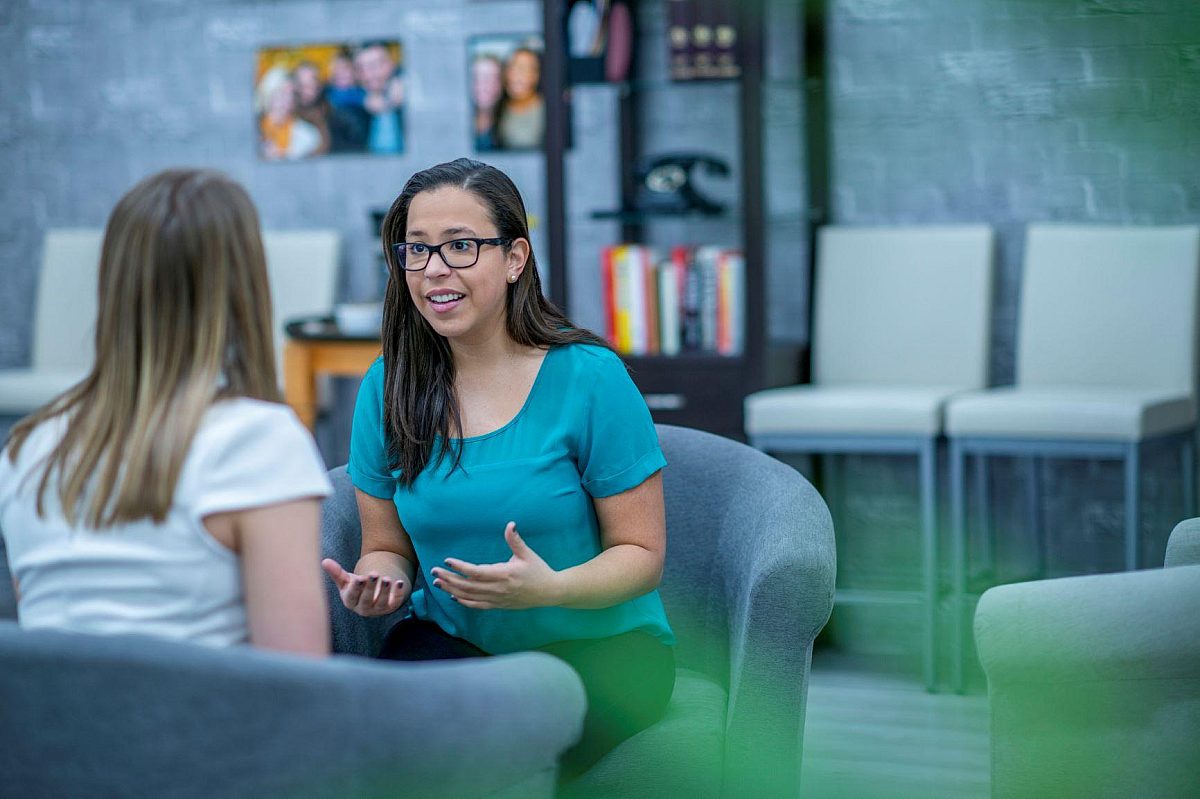Allied health
Allied health professionals play an integral role in facilitating a continuum of care for patients, keeping them well and supported in the community.

The National PHN Allied Health in Primary Care Engagement Framework (the Framework) developed by the PHN Cooperative recognises that a greater focus on allied health in primary care is essential for improving patient access, integration, safety, quality and cost-efficiency across the health system.
Engagement opportunities for allied health professionals
To strengthen our partnership with the allied health sector, the PHN invites allied health professionals to participate in a series of engagement activities that seek to understand our diverse allied health workforce, their support needs, and identify the barriers and enablers to providing patient-centred, integrated healthcare.
2025-26 engagement opportunities include:
- workforce mapping to build an understanding of the allied health services in our region
- support needs survey, focus groups and interviews to help us understand how the PHN can support the allied health sector
- co-design and implementation of a support plan that addresses the diverse needs of local professionals.
Current engagement opportunities
Current opportunities are being promoted via the Allied Health Collaborative.

The Allied Health Collaborative
Invitations to participate in the engagement activities will be disseminated via the Allied Health Collaborative (the Collaborative) – an inclusive support network of local allied health professionals that aims to strengthen collaboration and build partnerships between professionals, the primary care sector and the PHN.
Role of the Collaborative
By joining and actively participating in the Collaborative, you will:
- advise on key priorities impacting the allied health sector in the region with a focus on prevention, wellbeing and chronic condition management
- identify the enablers and barriers to providing patient-centred, integrated healthcare and contribute to the development of local initiatives in alignment with the Framework
- actively participate in stakeholder engagement initiatives including service mapping, support needs assessments, consultations, interviews, focus groups and quality improvement activities
- explore future opportunities to provide better access to allied health services and deliver patient-centred, multidisciplinary care, improving health outcomes for patients
- participate in the Your Voice in Allied Health survey and update your service details with the PHN (as required) to inform future collaboration and engagement opportunities
- network with your allied health colleagues to raise awareness of the Collaborative and help disseminate stakeholder engagement opportunities to providers in the region.
The PHN will seek feedback from the Collaborative regularly as part of our commitment to continuous quality improvement.
Membership
The Collaborative is inclusive and multidisciplinary in nature, with members representing a diverse range of allied health professions and settings including:
- primary healthcare
- sole traders, companies and partnerships
- public and private practice
- non-government organisations
- Metro North Health (acute, subacute and community health)
- private hospitals
- Brisbane North PHN.
Remuneration
Members of the Collaborative may be reimbursed for their time by the PHN for participating in some engagement activities. If members are otherwise remunerated by their respective organisation while contributing as part of the Collaborative, then no further payment from the PHN will apply.
Your voice in allied health
New members are welcome to join the Collaborative at any time. Allied health professionals may also be invited to join the Collaborative by the PHN to ensure diverse representation across the sector.
Your voice is important to us. To participate in the engagement activities and join the Allied Health Collaborative, complete the Your Voice in Allied Health survey to register your organisation with the PHN.

Resources to support allied health professionals
Select from the regularly updated resource list below for more information.
The National Allied Health Practice Engagement Toolkit (the Toolkit) aims to support allied health professionals in private practice with:
- understanding the local healthcare system they operate in, including their local PHN and how to connect with other primary care professionals and referrers
- understanding more about the services and resources that are offered by allied health peak bodies
- accessing learning and education opportunities to build skills and capabilities to improve patient care
- improving safety and quality in allied healthcare through tools that support improvement approaches
- understanding and utilising funding streams and accessing grant opportunities to support business efficiency and growth
- understanding the use of different digital healthcare systems to improve integration and connectivity of the healthcare system, and to support practice efficiency.
The Department of Health, Disability and Ageing has announced major changes to the Medicare Benefits Schedule (MBS) items for chronic condition management that took effect on 1 July 2025.
From 1 July, there is a new framework for chronic condition management, and GP Management Plans (GPMPs) and Team Care Arrangements (TCAs) have been replaced with a single GP Chronic Condition Management Plan (GPCCMP).
There are several changes that impact allied health professionals, including new referral guidelines to allied health services and multidisciplinary teams. Find out what these changes mean for you and your patients by viewing the allied health services fact sheet.
The National MyMedicare PHN Implementation Program has developed a user guide which provides a summary of the key changes included in the new chronic condition management framework, to support general practices and allied health professionals.
If you are an allied health professional working in private practice, you may be eligible to access one of the following free interpreting services.
Translating and Interpreting Service for Brisbane City Council LGA
Allied health professionals working in the Brisbane City Council Local Government Area (LGA) are eligible to access the Department of Health, Disability and Ageing (the Department) Free Interpreting Service (FIS), which aims to provide equitable access to key services for people with limited or no English language proficiency.
The service is delivered by the Department of Home Affairs Translating and Interpreting Service (TIS National) on behalf of the Department as a pilot program for selected LGAs. If your allied health service operates in the Brisbane City Council LGA you may be eligible to access this service.
More information and eligibility criteria.
Apply to access the Free Interpreting Service.
Interpreting for Allied Health Professionals Program for Brisbane North PHN region
Brisbane North PHN has established the Interpreting for Allied Health Professionals Program to ensure allied health professionals in the North Brisbane and Moreton Bay region can access interpreting services at no cost.
This service is available for allied health professionals who work outside of the Brisbane City Council LGA, but within the North Brisbane and Moreton Bay region.
Working with interpreters
Working with a qualified interpreter is essential to ensure all patients can access healthcare regardless of the English language skills. Engaging an interpreter helps you to communicate effectively with your non-English speaking patients, can protect you from professional risk and is consistent with best practice ethical and professional standards.
Guidelines for engaging an interpreter
- Identify the need for an interpreter as early as possible.
- If a patient does not speak English (and you do not fluently speak their language:
- engage a qualified interpreter
- avoid using relatives or friends to interpret – consider only for simple day-to-day communication
- do not use an automated translating app – these are not approved for use by health professionals when communicating with patients in a clinical setting.
- If the patient requires an interpreter:
- identify their preferences and record these on file
- consider whether a longer appointment is needed.
The Australian Commission on Safety and Quality in Health Care has released new guidance to support clinicians in the day-to-day use of Artificial Intelligence (AI) tools.
Pragmatic AI guidance for clinicians resources are available and relevant for clinicians who may use AI in their clinical work including doctors, nurses, medical imaging and allied health professionals, working in general practice, private practice, community health or hospitals.
Topics include:
- reviewing the evidence on the efficacy of the AI tool
- common limitations and risks of AI
- transparency in the use of AI and informed consent
- understanding the implications for patient information
- understanding AI and automation bias
- ongoing evaluation and monitoring of AI tools.
Brisbane North PHN provides a list of local positions available in the North Brisbane and Moreton Bay regions, submitted by local healthcare providers.
View current opportunities for allied health providers.
Local allied health businesses can also post a job listing on our website.
Localised HealthPathways are designed to provide our region’s clinicians with up-to-date evidence-based patient assessment and management, referral and service information in an easy-to-access web and mobile friendly format.

We acknowledge the Traditional Custodians within our region: the Jagera, Turrbal, Gubbi Gubbi, Waka Waka and the Ningy Ningy peoples of where we meet, work and learn. Brisbane North PHN is committed to reconciliation. Our vision for reconciliation is where the stories of our First Nations’ people are heard and shared, and networks are formed.